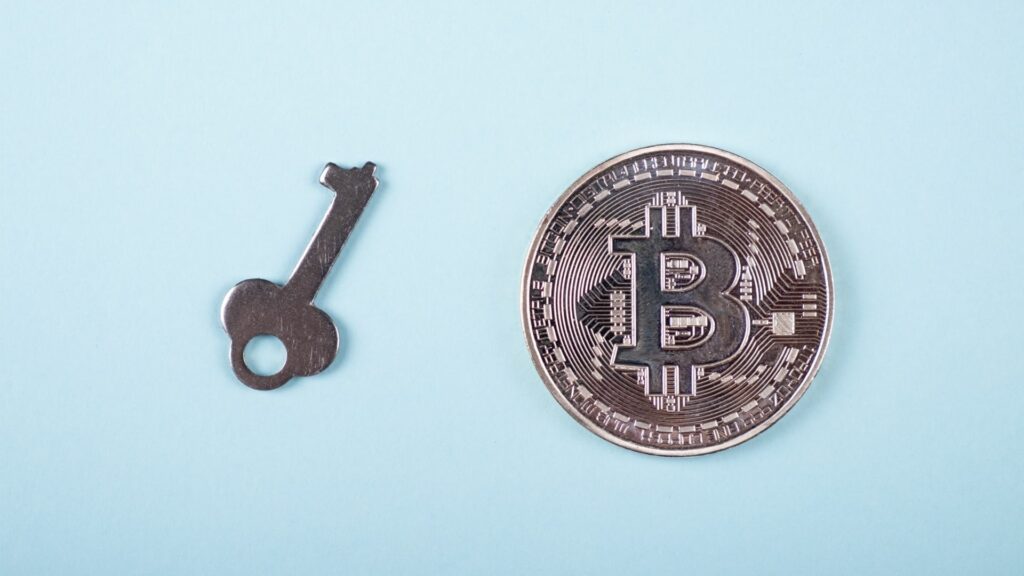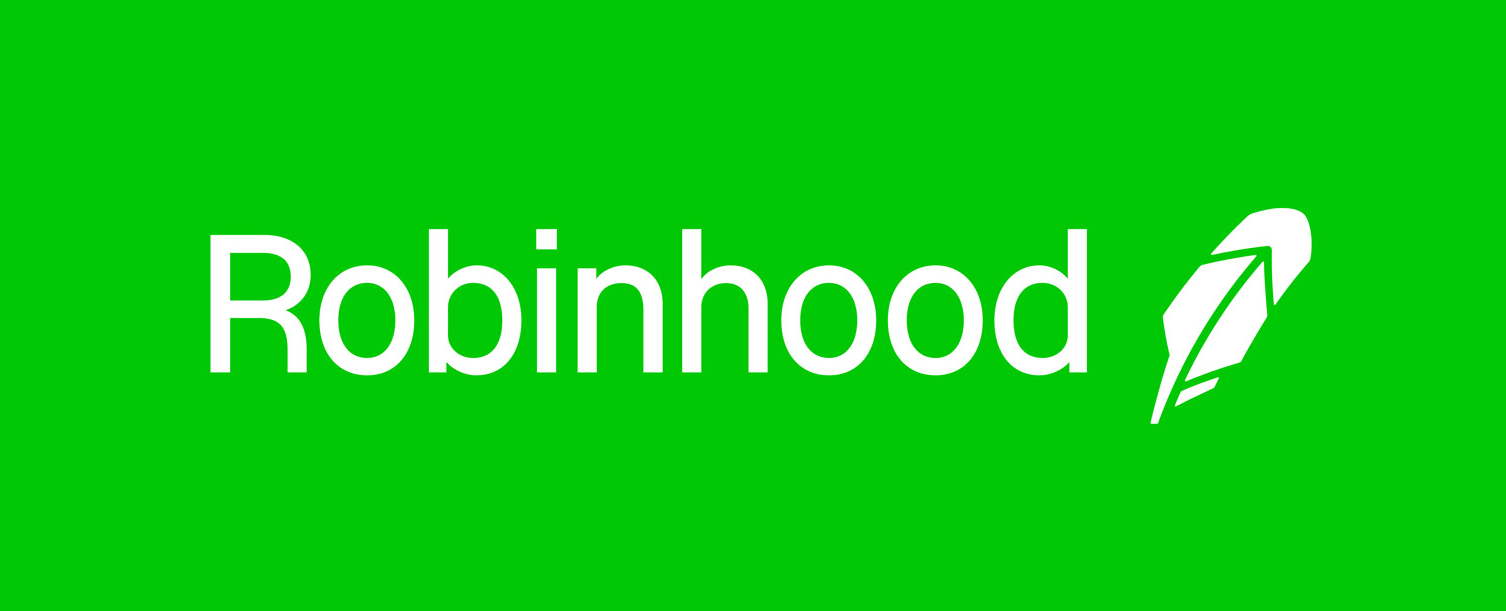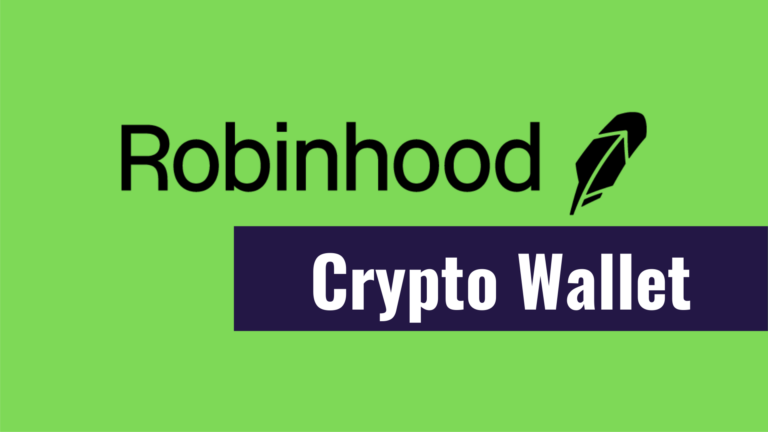You may have heard that Robinhood is preparing to roll out a new feature: crypto wallets.
And if you haven’t heard, now you know!
These wallets are currently available to beta testers and will be widely available soon.
In this article, we’ll be discussing what crypto wallets are and what it means for Robinhood users.
What Is a Crypto Wallet?
Robinhood has offered cryptocurrency investing on Robinhood Crypto for quite awhile now, so why is the rollout of the Robinhood Wallet a big deal?
Well, to answer that question, we first have to understand what a crypto wallet is.
And to understand what a wallet is, we have to understand the basics of blockchain technology.
Blockchain
Blockchain is a database that operates quite differently than the databases that we have been using for most of our lives.
Your typical database has physical servers that are kept in one location or a few locations, which leaves them exposed to harm through power outages, natural disasters, or tampering.
These databases also tend to store their data in a way that would allow a hacker to retroactively edit it, meaning that an experienced hacker could hack into a bank account, falsify transactions, steal information, and more.
But blockchain technology creates a much safer way to store information.
First of all, instead of having a bunch of server computers in one place, a blockchain connects to different users’ computers around the world, making it almost impossible to physically harm the stored information from the outside.
Additionally, a blockchain is structured in a way that makes it impossible for a hacker with bad intentions to go back in and change information.
As transactions are completed, they are verified by different users’ computers and then put into a “block.”
Each block has a certain amount of capacity, and once it’s full, it is locked and attached to the last completed block, forming a “chain” of blocks.
Transactions are secure (and decentralized) because they have to be verified by different users, and the information regarding past transactions is safe because past blocks are locked and timestamped.
The Keys

In order to interact with a blockchain, you’ll need two pieces of code: your public key and your private key.
Your public key is a code that is visible to all users. Whenever you engage in a transaction that posts to the blockchain, your public key is attached to the transaction.
If you want to send Bitcoin or another coin to someone else, you’ll need their public key.
Your private key, on the other hand, is a piece of code that only you know.
It should never be shared with anyone and it allows you to access your cryptocurrency and other private information that is stored on the blockchain.
Think of your public key as a username and your private key as your password; anyone can interact with you using your username, but only you can access your private account information using your password.
Now that we understand the basics about blockchain and public and private keys, let’s get back to the wallet!

Customer Service:
Email at support@robinhood.com
ROBINHOOD SUMMARY
What You Get:
- Professional Brokerage Services for Trading Stocks and Crypto
- Market Research and Stock News
- Crypto Wallet for Transactions and Conversions
The Robinhood Appeal:
- Industry-Leading App and Desktop Platform
- Led the Push Towards Commission-Free Investing
Robinhood Pricing:
- Robinhood is completely commission-FREE
- Robinhood Wallet is also free to use (network fees apply)
The Robinhood Wallet
A crypto wallet is a system, either physical (like a USB device) or intangible (like a software program), that stores your public and private keys and allows you to easily interact with the blockchain to make transactions.
External wallets can be connected to your phone or computer via cable or WiFi. A hardware wallet is a good way to store your private key information without keeping it on an easily accessible (and hackable) phone or computer.
Having a wallet with a crypto exchange can give you access to features such as buying and selling coins, sending and receiving coins to and from others, and token conversions.
In the past, Robinhood users could trade cryptocurrencies on the platform, but you couldn’t really access the coins you bought.
You would invest your money to buy a crypto like Bitcoin, and Robinhood would buy it on your behalf.
Then, Robinhood would keep your Bitcoin stored until you were ready to sell it.
You couldn’t send your Bitcoin to another person, receive crypto as payment for a transaction, or convert your Bitcoin into another crypto.
And THAT is where the new Robinhood Wallet comes in.
With the Robinhood Wallet, you can send and receive crypto as well as transfer in crypto from your other wallets to be traded on Robinhood. You can also fund the wallet through Robinhood Crypto.
Robinhood Wallet Costs
Robinhood has consistently been committed to bringing its users a commission-free investing experience.
Robinhood lets you send and receive crypto with your Robinhood Wallet at no extra charge.
There are, however, network fees (also called gas fees) that are usually charged for crypto transfers.
These fees are charged by the network of the specific crypto you’re transferring, not by Robinhood.
How to Get a Robinhood Wallet
You can create a brand new Robinhood Wallet, or import an existing wallet if you already have an Ethereum or Polygon wallet.
First, simply download the Robinhood Wallet app from the app store. This app connects you to web3 (a new, decentralized World Wide Web) and lets you swap crypto on Polygon (a blockchain platform).
There is currently a waitlist to get a Robinhood Wallet, which you can join here.
From the Robinhood Wallet app, you’ll simply select “Create a New Wallet” or “Import Your Existing Wallet.”
Follow the steps, and viola! You have your very own Robinhood wallet. Don’t forget to back it up in whatever way you choose.
You’ll also want to go into your account settings and make sure you’ve verified your identity with Robinhood and enabled two-factor authentication for your account.
Is Robinhood Wallet Safe?
Robinhood is a registered broker dealer, member of FINRA. This means that their activities are strictly monitored and held to the highest standards.
Robinhood Crypto is registered with FinCEN, a government agency that regulates financial transactions. So, Robinhood has a watchful eye on them whenever they move your money.
Robinhood stores your crypto in a mix of hot and cold storage, but a majority of it is cold storage.
The new Robinhood Wallet is also a non-custodial wallet, which can be good or bad. A custodial wallet leaves your private key in the hands of the custodian, meaning they’re responsible for its security.
But with a non-custodial wallet like the Robinhood Wallet, you have full control of your private key. This gives you more control, but also more responsibility for protecting your crypto.
Here is part of Robinhood’s disclaimer relating to the security of their crypto services:
Brokerage services are offered through Robinhood Financial LLC, (“RHF”) a registered broker dealer (member SIPC) and clearing services through Robinhood Securities, LLC, (“RHS”) a registered broker dealer (member SIPC). Cryptocurrency services are offered through Robinhood Crypto, LLC (“RHC”) (NMLS ID: 1702840). Robinhood Crypto is licensed to engage in virtual currency business activity by the New York State Department of Financial Services.
At the end of the day, cryptocurrency is volatile and somewhat complicated. You should do your research and have a deep understanding of crypto before you invest in or transfer a coin.
Final Thoughts
If you’ve already been trading cryptocurrency on Robinhood, then the Robinhood wallet will only add to your experience.
And if you’re just getting into the crypto game and you’re trying to figure out which exchange and wallet you should use, then Robinhood’s new wallet makes it an attractive choice!
If you want to learn about other features that Robinhood has to offer, you can read our Robinhood vs eTrade Review or Robinhood Cash Management Review.
The Best Crypto Brokerages as of February 1, 2026
Ranking of Top Crypto Brokerages Based on Fees, Features, and Sign-Up Bonuses
We are experienced users of dozens of crypto platforms. We stay up to date on these platforms' service offerings, subscription fees, trade commissions, and welcome bonuses. The brokerages listed below are for crypto investors, and are ranked in order of overall value received after taking advantage of their sign-up and/or referral offers.
✅ No commission
✅ Crypto price alert
✅ Access to over 250 cryptocurrencies
✅ 24/7 customer support for verified users
✅ Institutional-grade custody services with SOC 2 compliance
✅ Crypto rewards credit card with BTC/ETH back
✅ High staking yields on 15+ assets
✅ Regulatory licenses across U.S., Canada, and Europe
• $50 in BTC after a $25 deposit & $10 trade.
• 20% fee rebate via select referral codes.
✅ Transparent spread-based pricing with no commission
✅ Recurring buys and wallet-to-wallet transfers
Fees, features, sign-up bonuses, and referral bonuses are accurate as of September 30, 2025. All information listed above is subject to change.








